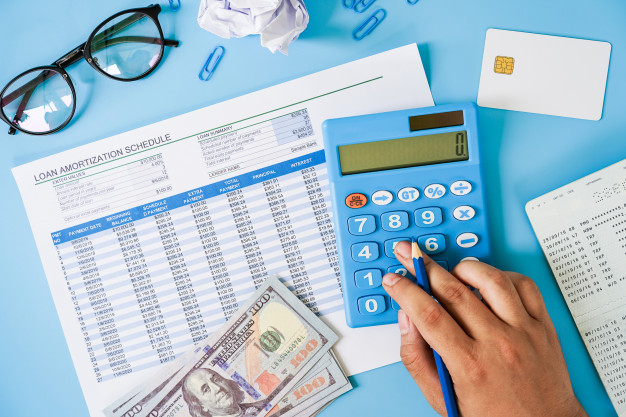Tag: Personal Loan

5 steps to take if your personal loan application is rejected
Ever applied for a loan, only to get rejected? Having your loan application turned down can be a discouraging experience, especially for first-time borrowers. Or, you may have taken loans in the past and wondered why your recent application wasn’t approved. The truth is that there are a variety of reasons that can affect your personal loan eligibility. Often times, it’s just one main issue, but other times, it can be a combination of reasons. If you aren’t sure why your loan application got rejected, you can use a personal loan eligibility calculator to check what was the shortcoming in your personal loan application. Read on to find out what you should do to increase your chances of approval in the future. 1. Check the lender’s eligibility criteria All banks and lenders have a basic criteria that determine whether a borrower qualifies for a loan. The main reason why most people’s loan application gets rejected is that they did not meet all the lender’s criteria. The eligibility criteria for a personal loan include age, income, location, credit score, employment, and other factors. Lenders will clearly mention this eligibility on their website or app. Generally, banks have stricter eligibility criteria and only accept applicants with a higher salary and excellent CIBIL score, whereas digital lenders have wider eligibility criteria. If you have read through the lender’s eligibility criteria but still aren’t sure whether you qualify, use a personal loan eligibility calculator. 2. Improve your CIBIL score CIBIL score is a summary of one’s creditworthiness based on their credit history. Although the minimum CIBIL requirement varies from lender to lender, one of the reasons that your application may have been rejected is because your CIBIL score is too low as per the lender’s eligibility criteria. Check your CIBIL score from the CIBIL website. If it is less than 650, you should work on improving your score by using a credit card. Spend responsibly and pay your card in full before the due date. This will help increase your credit score. 3. Make sure your outgoing expenses are low One of the reasons that lenders will reject a personal loan application is because the applicant has too many existing debts, and for such a borrower, taking on another financial burden would increase the chances of default. Take a look at your finances and see if there are any expenses you can cut back on. If you have a lot of existing debt, work on repaying them off before you apply for a new loan. 4. Provide the correct details Loan applications can get rejected if there is even a small error or a signature mismatch. Ensure that the details you provide in the form are clearly written/typed out, and most importantly, correct. Providing false details about your income, identity or credit score will certainly be detected by lenders, and this is another reason why many applications get rejected. Be honest in your application form, as some lenders are willing to accept applicants with less than perfect CIBIL scores or incomes. 5. Apply for a lower loan amount Due to your current financial capacity, you may not be able to take on the responsibility of paying back a huge loan. If you’re still in desperate need of a loan, aim for personal loans singapore as it makes the best offerings in financial capacity. Aim for around 40% or less of your net monthly income. Conclusion Don’t feel disheartened if your loan application got rejected. Follow the tips above in case your loan wasn’t approved this time, and re-apply after 90 days. If you aren’t sure whether or not you qualify for your desired loan amount from a lender, be sure to check the eligibility criteria for more information. You can also use a personal loan eligibility calculator to check for your loan eligibility. Read Also: 3 Factors That Determine Your Personal Loan Interest Rate 7 Reasons To Apply For A Loan Online 5 Questions To Ask When Deciding On An SBA Loan
READ MOREDetails
3 Factors That Determine Your Personal Loan Interest Rate
Personal loans are collateral-free loans, making them most people’s first choice when seeking finance from an external source. Apart from the ease, you can access a hefty amount to fund a range of personal loan for your personal need. However, being an unsecured loan, personal loan interest rates are relatively higher than those of secured loans. The interest rate on a personal loan depends on various factors. Firstly, it depends on the type of loan you choose, fixed or floating interest personal loan. Further, it alters based on how well you qualify for the loan as per the lender’s personal loan eligibility criteria. Typically, these criteria are based on your age, income, profession and credit score. But first, take a look at the ongoing personal loan interest rates in the country so that you can make a wise borrowing decision. Present Personal Loan Interest Rates in India Interest rates on loans are linked to the repo rate. An increase in the repo rate increases loan interest rates and vice versa. Recently, the RBI cut the repo rate by 25 bps for the third time this year, and currently, it stands at 5.75%. Further, the weighted average interest rate on loans rose from 10.38% in January to 10.42% in April, indicating negligible movement. However, experts opine that you can expect more rate cuts in the coming months as the RBI has moved from a neutral to accommodative monetary policy stance. Now that you know of the broader factors that affect your personal loan interest rate, take a look at 3 important factors that are specific to your financial profile. Your Credit Score Your credit score is a reflection of your creditworthiness and past repayment behavior. A good score of 750 and above implies that you have repaid all your past debts on time. Thus, lenders categorize you as a low-risk applicant and offer competitive interest rates on a personal loan. Conversely, a score lower than 750 shows that you carry some amount of risk. He ce, you may have to pay a higher interest rate or settle for a low loan amount. Your Income A high income means that you are capable of repaying the personal loan on time, and this reduces the lender’s risk. As a result, they are likely to charge you a lower personal loan interest rate. In contrast, if your income seems insufficient, you are more likely to default and may not have the resources to repay the loan in full. As this poses a high risk to the lender and it has no collateral to fall back on, you have to pay a greater amount as interest. Your Relationship With The Lender If you have an existing business relationship with your lender and have displayed responsible credit behavior, in the interest of retaining you as a customer, the lender may offer you a competitive interest rate. Now that you know the factors that determine your personal loan interest rate, work towards securing the loan on competitive terms. To ensure this, compare lenders and their offerings before applying for a personal loan in order to bag the best deal. For instance, genuine lenders like Bajaj Finance have simple personal loan eligibility criteria and minimum documentation so you can qualify for a loan easily. Once approved, you can access up to Rs.25 lakh personal loan at a nominal interest rate and repay it over a flexible tenor spanning 12 to 60 months. Further, you can avail this loan on a Flexi facility that lets you withdraw on the go and pay interest only on the amount utilized. Additionally, you can pay interest-only EMIs throughout the tenor and repay the principal only when the tenor is up. This way, you can manage your finances and save up to 45% on EMIs. To view tailor-made deals and avail an online personal loan in a single step, check your pre-approved personal loan offer from Bajaj Finserv right away. Read Also: Why Personal Lenders Like SkyCap Financial Provide A Better Lending Experience Lining Up For A Loan – How To Secure A Good Loan
READ MOREDetails















